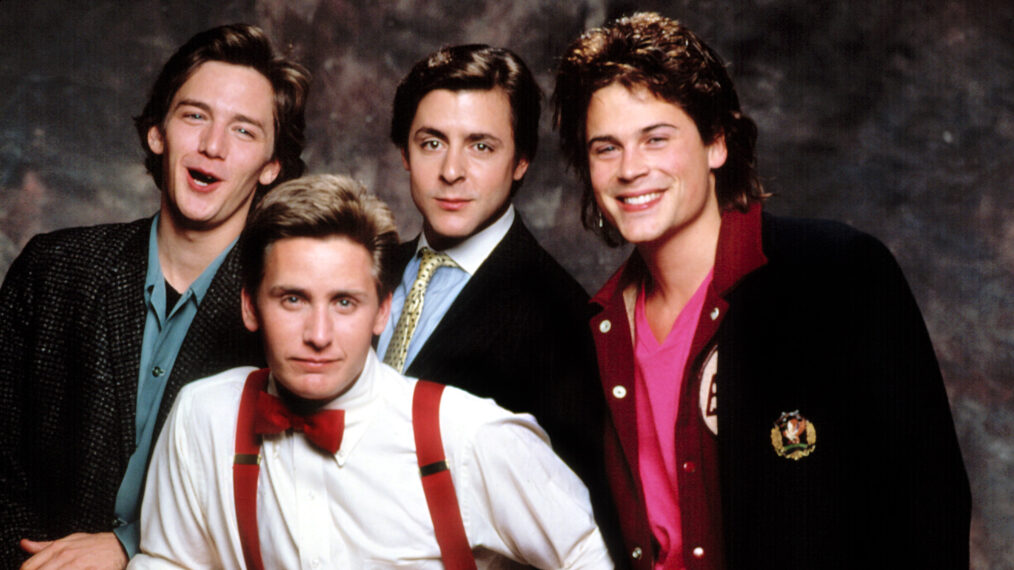“Brats” (2024) Review
Director: Andrew McCarthy Screenwriter: Andrew McCarthy Cast: Andrew McCarthy, Emilio Estevez, Ally Sheedy Distributor: Hulu Running Time: 92 min. MPAA: Not Rated
The story behind the Brat Pack is more interesting than the fallout of its effect. The collective of young actors from the 1980s never chose that title. It was the product of scathing article with a name that stuck in the media. The longer it lingered, the more these actors wanted to dissociate from each other, even though they never hung out much. It’s why the possibility of a reunion for this ensemble doesn’t seem to be in the future, despite what Brats may promise.
It’s very telling how stand-offish the actors have been about connecting on this experience. The only reason they’ll even discuss the phenomenon within this film is that Andrew McCarthy, a Brat Pack actor from St. Elmo’s Fire and Pretty in Pink, is making this movie and hosting the interviews. It’s one of the first questions that McCarthy asks Emilio Estevez. As Estevez voices his preference not talk about the Brat Pack, he admits the only reason he’s speaking about it with McCarthy is because he asked. The interview doesn’t dig into much else, as the two spend more time reminiscing on the good times and how they prefer not to remain in the past.
McCarthy’s documentary of trying to land interviews with his old co-stars feels more like a mild therapy session than any meaningful reflection of the Brat Pack legacy. Perhaps he thought that his presence would loosen the media perceptions, where no actor would have to fear being asked once more, “Do you all hang out?” or “Any chance of a Breakfast Club reunion?” There is certainly some comfort when he talks with the likes of Ally Sheedy and Demi Moore. Their conversations feel more like a casual catch-up among friends. They relate to such stories about the influence they had left and how movies mattered more to them than their health. Jon Cryer gets a little more blunt, but no more than one would expect for relating more to the experience of being a young actor than his connections with his co-workers.
For what might seem like an enlightening retrospective, this documentary doesn’t unearth much that hasn’t already been addressed, be it the public knowledge of the actors or the insights between them. There’s an extra layer of dissatisfaction when McCarthy ventures off to interview David Blum, the reporter who coined the label of Brat Pack. The awkward conversation is staged in a way where McCarthy almost expects an apology or at least an admittance of embarrassment for the friction caused by the written piece. If that’s what McCarthy was gunning for, he doesn’t get it. It has all the uncomfortable energy of the documentary Heckler, where Jamie Kennedy tried to confront his critics with disastrous results.
Brats serves more of a reminder about why the Brat Pack was never a nostalgic moment for those involved. There are a few unique anecdotes between the actors and those who grew up being influenced by their work, but nothing you wouldn’t hear casually slung between drinks at a bar or briefly noted in an interview. For a film that wants to get closer to the actors and speak more about their 1980s fame, they still feel as distant as ever, highlighting how the Brat Pack was a wound many prefer stayed close.


